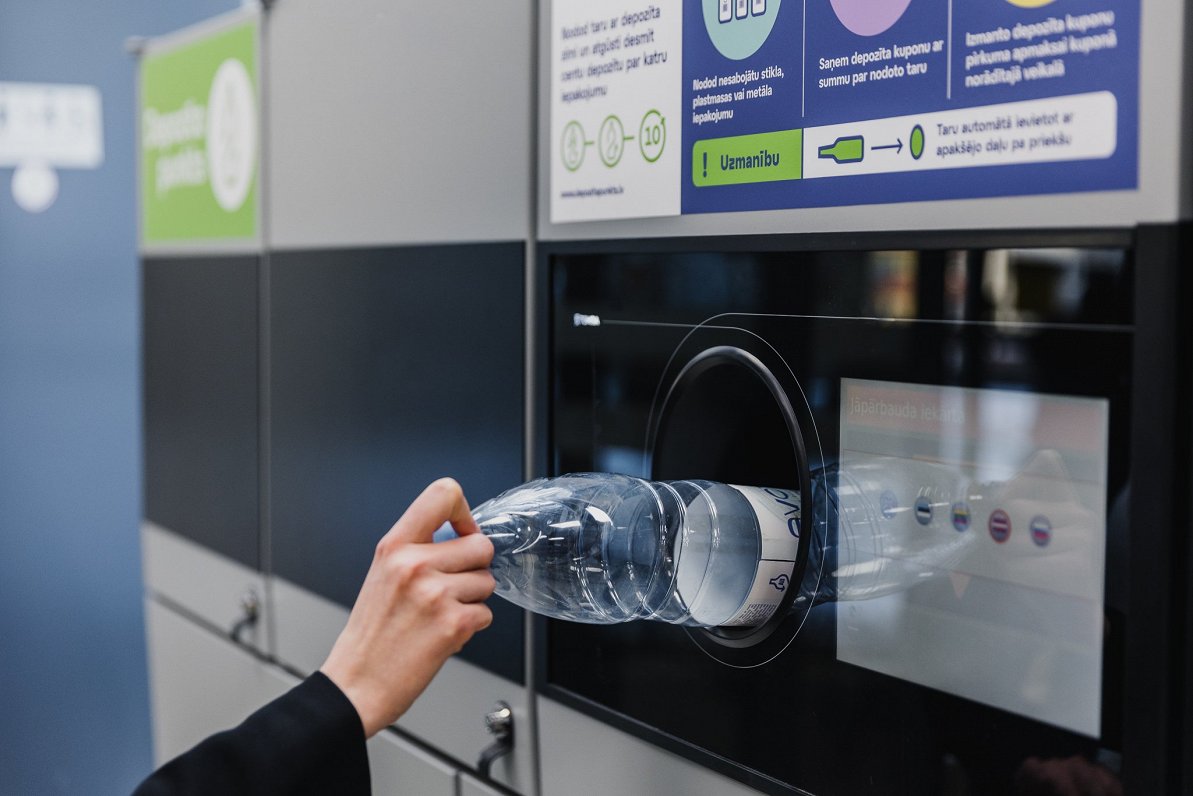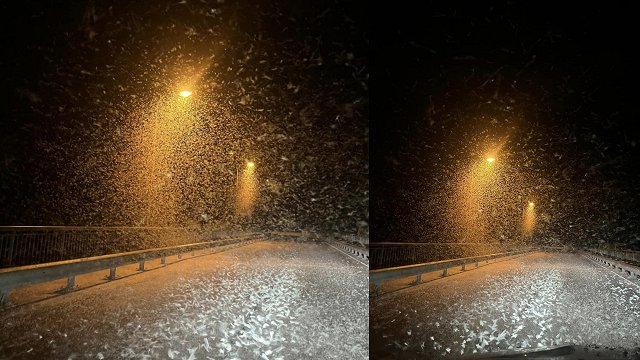Most of the deposited packaging are PET bottles, with cans and glass bottles taking the backseat. All packages included in the deposit system have not yet been labeled, as there is a transitional period until August during which products are allowed to be sold without a deposit mark.
“The manufacturers' estimate, polling the largest producers on the last days of February, was that 20% of the entire packaging volume that goes out of the factory and is shipped to the trader is with a deposit mark. Meanwhile, in March, the producers themselves predict it will already be up more than 50%, and by the end of April, they must already have 90% of packages with a deposit mark. In addition, major traders have also laid down the condition that after May 1 they no longer accept packaging without a label from manufacturers and importers,” said Miks Stūrītis, chair of the deposit system operator.
Just before the system was introduced, there were approximately 100 retailers in Latvia who had not entered into agreements regarding the acceptance of packaging with the operator. The head of the State Environment Service Elita Baklāne-Ansberga said that the number of these retailers is shrinking. Retailers who fail to comply can be fined up to €10 thousand.
“During the first month, progress was seen, and those retailers who were prepared and wanted to enter into contracts have done so. There are still a couple of dozen retailers who haven't entered into contracts, but the total number of stores is higher because there are retailers who have multiple stores. The main problematic partner is the owner of the “Beta” trading network, which has 28 stores and has still not concluded an agreement with the operator on the acceptance of the deposit package. February was a month of leniency, but in March, if we have not received information that the contracts have been concluded, we will start imposing financial sanctions on these traders,” said Baklāne-Ansberga.
The system causes more difficulties for smaller stores in rural areas, as there are issues with the storage of the packaging until it is collected. Shop network Aibe CEO Juris Lamberts said that the deposit system so far works well at big stores, but small shops have concerns. Technical difficulties arise where the packaging is accepted manually, not in a reverse vending machine. “If more bottles come in, it should be taken as a matter of priority that purchases should be handled, then bottles should be accepted and everything that is with hygiene should be done, and then food products should continue to be sold. There, in some way, I see that there will be congestion,” Lamberts said.
In Rīga, residents addressed by Latvian Radio generally support the sorting of waste but said that the system is inconvenient.
“I never used this system once and, to be honest, I don't want to do it either, because, as I understand, there must be a certain deposit mark on the bottle so that the package can be returned, but we are used to certain products that still don't have this mark. In addition, there is no motivation to run all over town because of two bottles. I have sorting containers outside the house, where I will continue to throw them. It's more convenient for me,” said one of the people.
A deposit system 101 can be found on our other story.





























